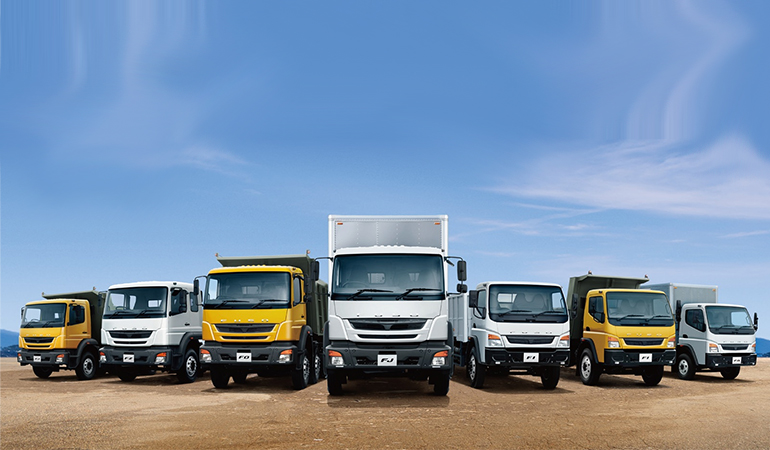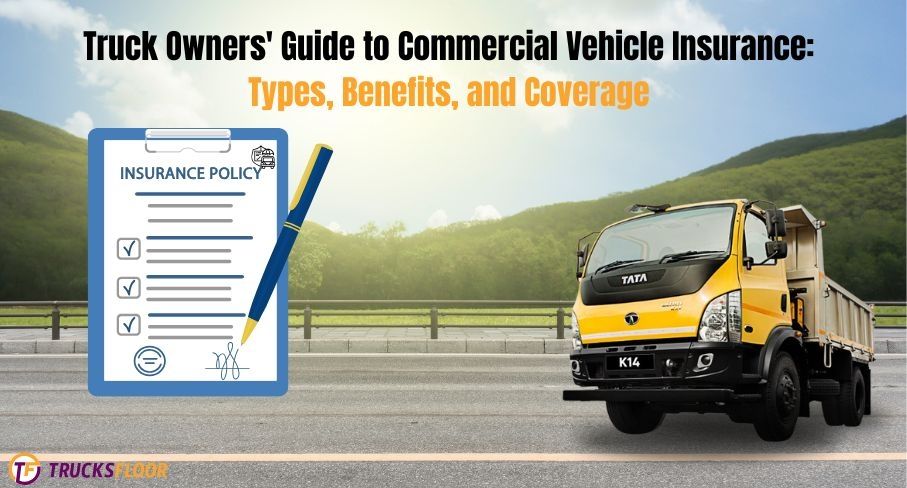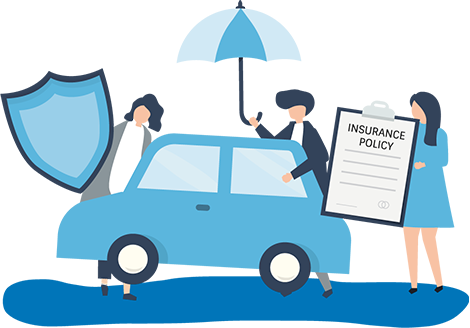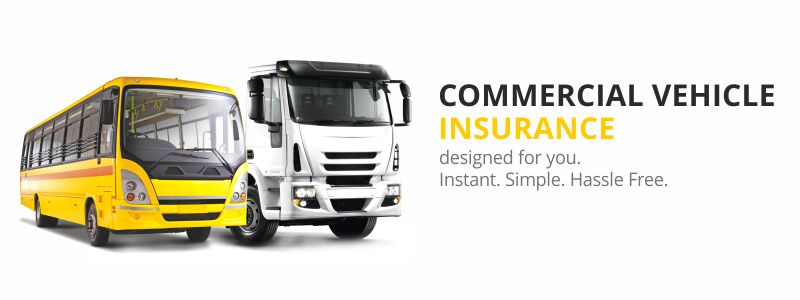Running a business often means relying on vehicles — for deliveries, logistics, or employee transport. Whether you own a single car or an entire fleet, your vehicles are a vital business asset. But what happens if one of them is damaged in an accident, stolen, or causes third-party injury?
That’s where Commercial Vehicle Insurance comes in — offering essential protection for your business operations and financial stability.
What Is Commercial Vehicle Insurance?
Commercial Vehicle Insurance is a type of motor insurance designed to cover vehicles used for business or commercial purposes. It protects your business from potential financial losses due to accidents, theft, natural disasters, or third-party liabilities.
Unlike private car insurance, which covers personal vehicles, commercial vehicle insurance is meant for business-owned vehicles — such as trucks, taxis, vans, buses, delivery vehicles, or company cars.

Why Is Commercial Vehicle Insurance Important?
- Legal Requirement:
In India, it is mandatory under the Motor Vehicles Act to have at least third-party liability insurance for all vehicles, including commercial ones. Without valid insurance, you can face heavy fines or even legal action. - Financial Protection:
Accidents can happen anytime. Repairing a commercial vehicle or compensating third parties can cost lakhs. Insurance ensures that your business doesn’t bear these expenses directly. - Covers Employee Drivers:
If your driver or employee meets with an accident during business operations, the policy covers injuries, medical costs, or death compensation. - Business Continuity:
With insurance, you can quickly recover damages, repair or replace vehicles, and get back to operations without major financial disruptions.
Types of Commercial Vehicle Insurance
There are mainly two types of commercial vehicle insurance policies in India:
1. Third-Party Liability Only
This covers:
- Injury or death of a third party due to your insured vehicle
- Damage to third-party property
However, it does not cover damage to your own vehicle.
2. Comprehensive Policy
A comprehensive plan covers both:
- Third-party liabilities
- Own vehicle damages due to fire, theft, accidents, natural calamities, or vandalism
Businesses usually prefer this type for full protection.

Coverage Under Commercial Vehicle Insurance
A comprehensive policy generally includes:
- Accidental damages to the insured vehicle
- Theft or total loss of the vehicle
- Fire, explosion, or lightning damage
- Natural disasters like floods, earthquakes, or storms
- Third-party injury, death, or property damage
- Personal accident cover for the owner-driver
You can also add extra protection with add-on covers like:
- Zero depreciation cover
- Roadside assistance
- Engine and gearbox protection
- Return-to-invoice cover
What’s Not Covered? (Exclusions)
It’s equally important to know what your policy won’t cover:
- Normal wear and tear
- Driving without a valid license
- Using the vehicle for illegal activities
- Drunk driving
- Consequential losses or mechanical breakdowns
- Damages outside the geographical area (unless extended coverage is taken)
Who Should Buy Commercial Vehicle Insurance?
This insurance is essential for:
- Fleet owners and transport companies
- Logistics and delivery businesses
- Taxi and ride-sharing operators
- Manufacturers and traders using goods carriers
- Construction businesses using heavy vehicles
Even if your business owns just one commercial vehicle, insurance is crucial.
Benefits
- Comprehensive risk protection
- Compliance with legal norms
- Peace of mind for business owners
- Coverage for drivers and employees
- Financial stability during unforeseen events
How to Choose the Right Policy
When comparing commercial vehicle insurance plans, consider:
- Coverage Scope:
Check if it covers own damages, third-party liabilities, and driver protection. - Add-on Options:
Select add-ons that match your business use (e.g., roadside assistance for delivery vehicles). - Claim Settlement Ratio:
Always check the insurer’s claim performance. - Premium vs. Coverage Value:
Don’t just go for the lowest premium — choose a policy that offers the best balance. - Customer Support:
Ensure the insurer provides quick claim support and network garage access.

How to File a Claim
- Inform the insurer immediately after the incident.
- File an FIR in case of theft or major damage.
- Submit documents like policy copy, registration certificate, and claim form.
- Get vehicle inspection done by the insurer’s representative.
- Receive claim settlement once verified.
To make claims easier, maintain accurate documentation and records of your drivers and vehicles.
Why Choose KaroInsure?
At KaroInsure, we make insurance simple for every business. You can:
- Compare top commercial vehicle insurance plans from leading insurers
- Get expert assistance for claims and renewals
- Save time and money with quick online quotes
Our goal is to help you protect your business vehicles without hassle.
Conclusion
Commercial Vehicle Insurance isn’t just a legal formality — it’s a smart business investment. With rising road risks and repair costs, having the right coverage ensures that your business keeps running smoothly even after setbacks.
If you’re a business owner in India, make sure your fleet is protected today.

Leave a Reply